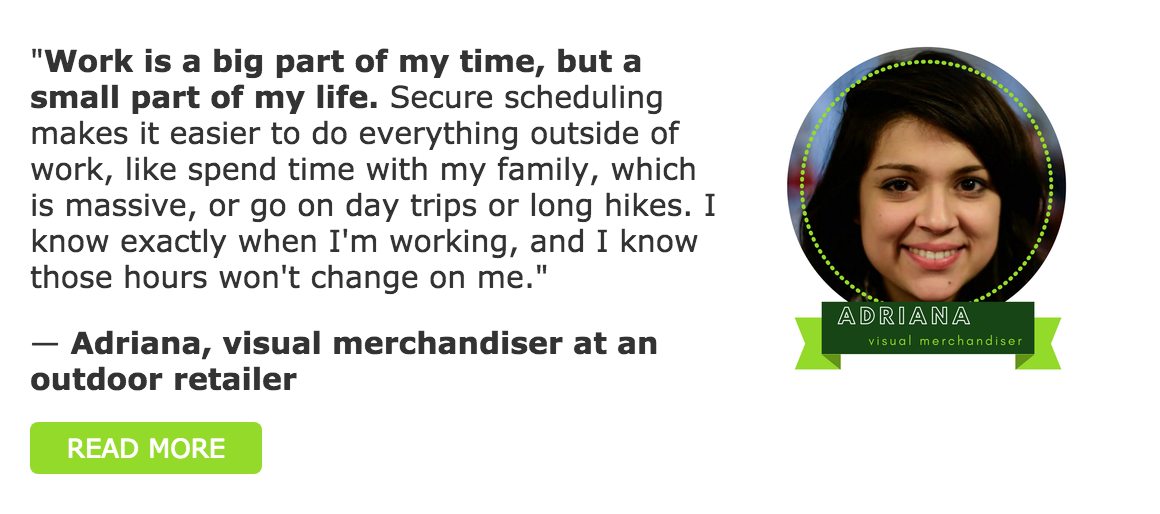We kicked off our campaign last December, and we've been fighting ever since. Seeing our Bill of Rights finally introduced at City Hall — after the months we've spent going to meetings at libraries, coffee shops, and restaurants, speaking out at events, discussing the amendments one by one — was so empowering. I really felt like I had a place — we were all standing there together in support of the bill, making a change and making history.
I've become a leader in this campaign because domestic work is real work. I'm lucky enough to work for a family that really takes care of me. But that wasn’t always the case. A year ago, I was nannying for a family in West Seattle. They cared about me, but they didn’t know what they were supposed to be doing as employers. They didn't provide health insurance, any paid sick leave, or even rest breaks while I was working shifts up to 10 hours. Not having insurance was horrible — I racked up a $1000 bill for an emergency room visit that I'm still paying off. And there were a couple times I got really sick, and since I didn't have paid time off, I ended up losing hours and losing money.
It's really important that domestic workers are treated like other workers, because we're completing jobs, working hours, getting paid for the service we're doing. When you provide health insurance, when you provide breaks and paid time off, you provide a sense of care. You provide a sense of stability, and a foundation for someone to grow off of while they're raising your own.
Being a part of this movement makes me feel like I'm not isolated — like we're all in it together, working as a single organism.
It's time you join the movement, too!
Now that the Domestic Workers' Bill of Rights has been introduced, we're going to have to keep up the momentum to get it passed into law. We're not going to stop here. Whether you're a domestic worker or not, we need your support. If workers aren't all on the same team, working together and supporting each other, we won't get anywhere.
We're people too. We deserve equal rights, just like everyone else — and that means earning the minimum wage, getting rest breaks while we’re working, access to insurance, a retirement plan, paid time off, and contracts so there are certain standards to be upheld.
Yes! I support the Domestic Workers' Bill of Rights.
Thank you for your support — it's allowed me to become a leader and make this movement HAPPEN. Let's not stop here! I can't wait to see us reach all the domestic workers in Seattle. We can get our Bill of Rights passed, and then build the momentum to secure rights for domestic workers across the country, if we put our hearts in the right place and take action!
— Ty, nanny, musician, and leader with Working Washington

























